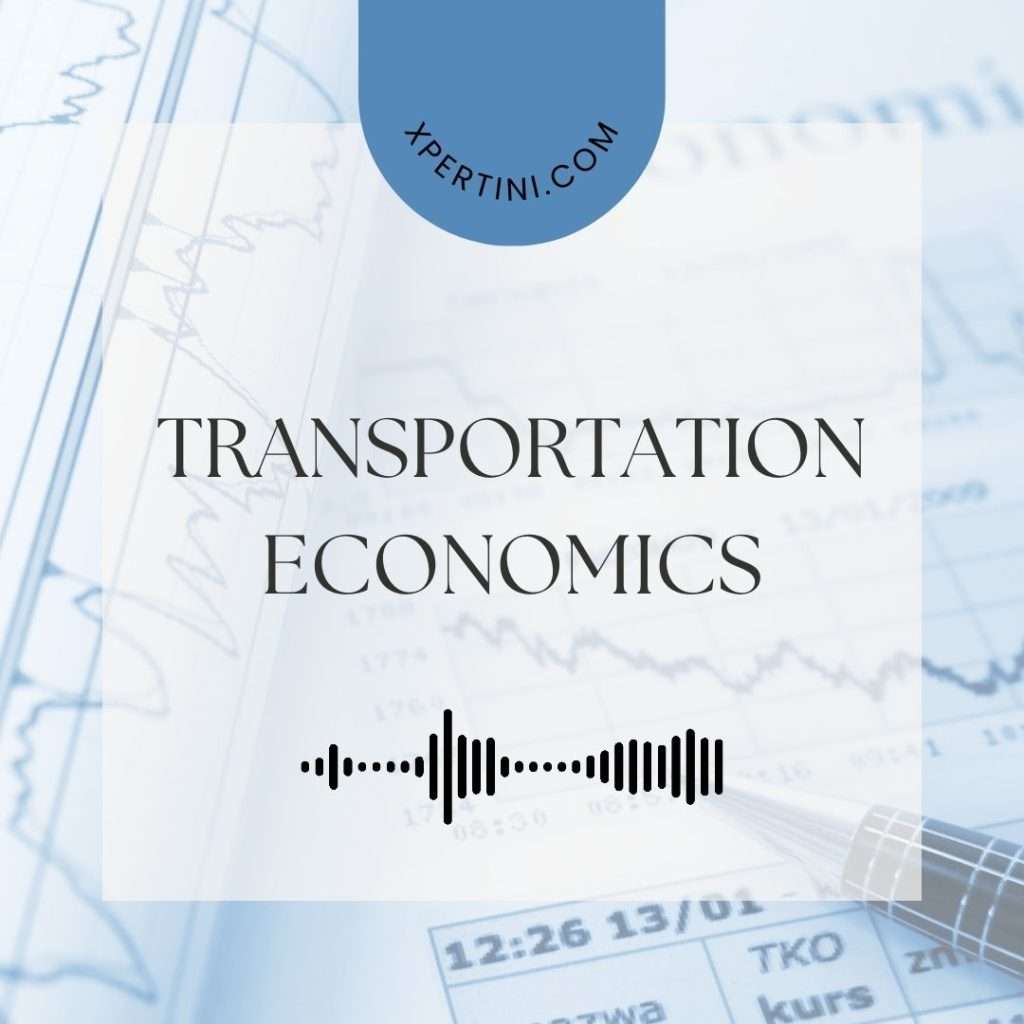Transportation Economics
Course Summary
Transportation Economics delves into the economic dynamics shaping modern transportation systems, policies, and infrastructure. From the fundamental principles driving supply and demand to the profound impacts on societal equity and environmental sustainability, this course provides a comprehensive exploration of the economic underpinnings of transportation.
Throughout the journey, participants reveal the history of transportation, tracing its evolution across modes and infrastructure while dissecting key economic drivers that have propelled its development. Engaging with economic models, students analyze the cost-benefit considerations vital for evaluating transportation projects’ economic viability.
Market structures and competition come under scrutiny, illuminating the implications for policy in managing transportation industries effectively. Government intervention and regulation emerge as pivotal themes, elucidating the role of regulatory policies in shaping transportation markets and mitigating externalities.
Participants delve into innovative pricing mechanisms and financing strategies, essential for managing demand and financing infrastructure projects sustainably. Moreover, the course illuminates the symbiotic relationship between transportation infrastructure investment and economic development through illuminating case studies.
By the course’s conclusion, participants are equipped with an understanding of transportation economics, poised to navigate diverse career pathways in transportation planning, policy, and management. Whether professionals seeking to enhance expertise or students aspiring to enter the field, this course serves as a cornerstone for unlocking the vast potential within transportation economics.
Course Overview
Transportation Economics is a vital field that examines the economic aspects of transportation systems, infrastructure, and policies. This course provides a comprehensive understanding of how economic principles apply to various modes of transportation, their efficiency, sustainability, and impacts on society and the environment.
Course Objectives
Understand the economic principles underlying transportation systems.
Analyze the economic impacts of transportation policies and investments.
Evaluate the efficiency and sustainability of transportation modes.
Explore the relationship between transportation and economic development.
Examine the role of government policies in shaping transportation markets.
Apply economic tools and models to transportation decision-making.
Critically assess the externalities and market failures associated with transportation.
Discuss the equity and social justice implications of transportation economics.
Identify opportunities for innovation and improvement in transportation systems.
Prepare for careers in transportation planning, policy, and management.
Course Outcomes
Describe the fundamental economic principles relevant to transportation systems.
Analyze the cost-benefit considerations in transportation infrastructure projects.
Evaluate the impact of transportation policies on economic efficiency and equity.
Apply demand and supply analysis to understand the transportation markets.
Assess the environmental and social externalities associated with different transportation modes.
Analyze case studies to understand the economic development impacts of transportation investments.
Propose strategies for improving transportation system efficiency and sustainability.
Examine the role of pricing mechanisms in managing transportation demand.
Critically evaluate the role of government regulation in shaping transportation markets.
Develop recommendations for addressing equity issues in transportation planning and policy.
Course Audience
Professionals seeking to enhance their expertise in transportation economics.
Students pursuing careers in transportation planning, engineering, or policy.
Researchers interested in studying the economic aspects of transportation systems.
Government officials involved in transportation policy and infrastructure development.

